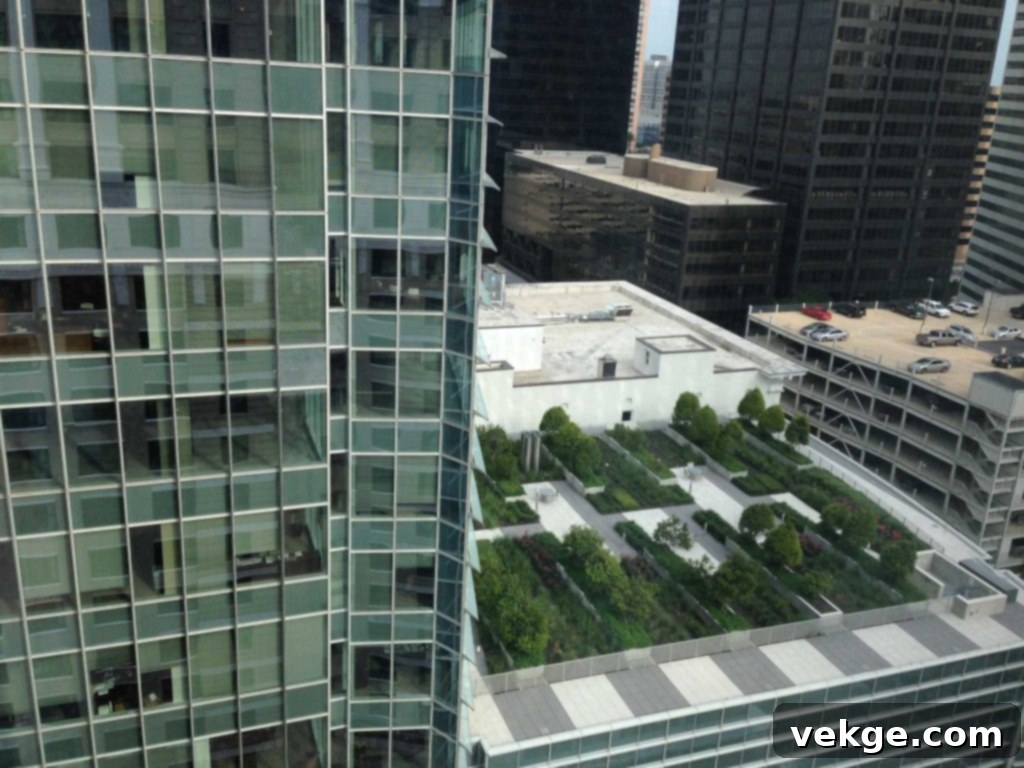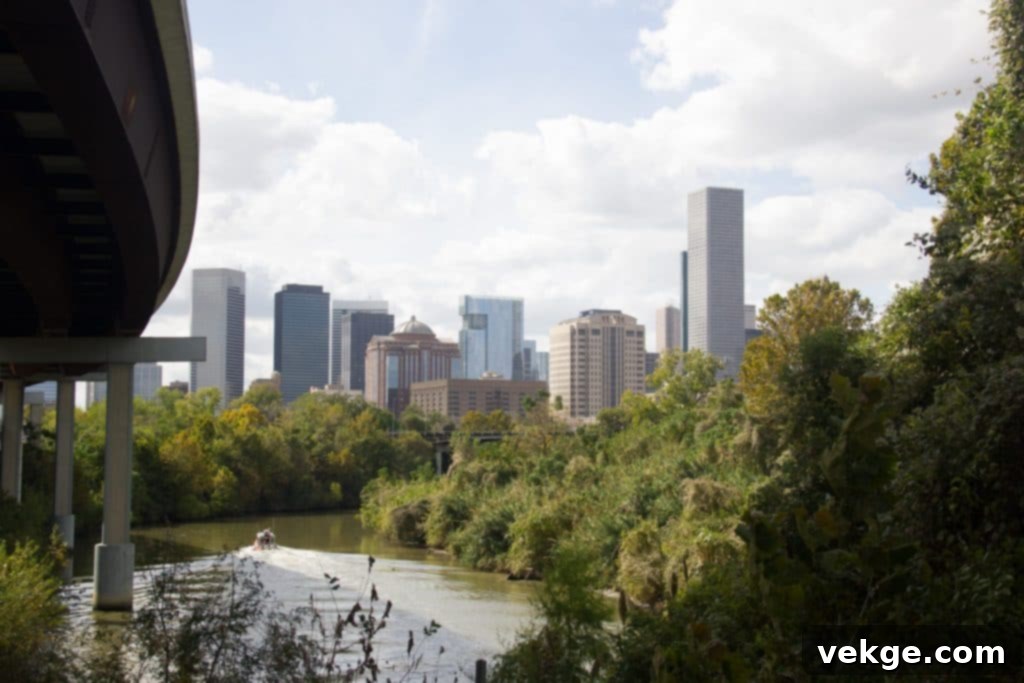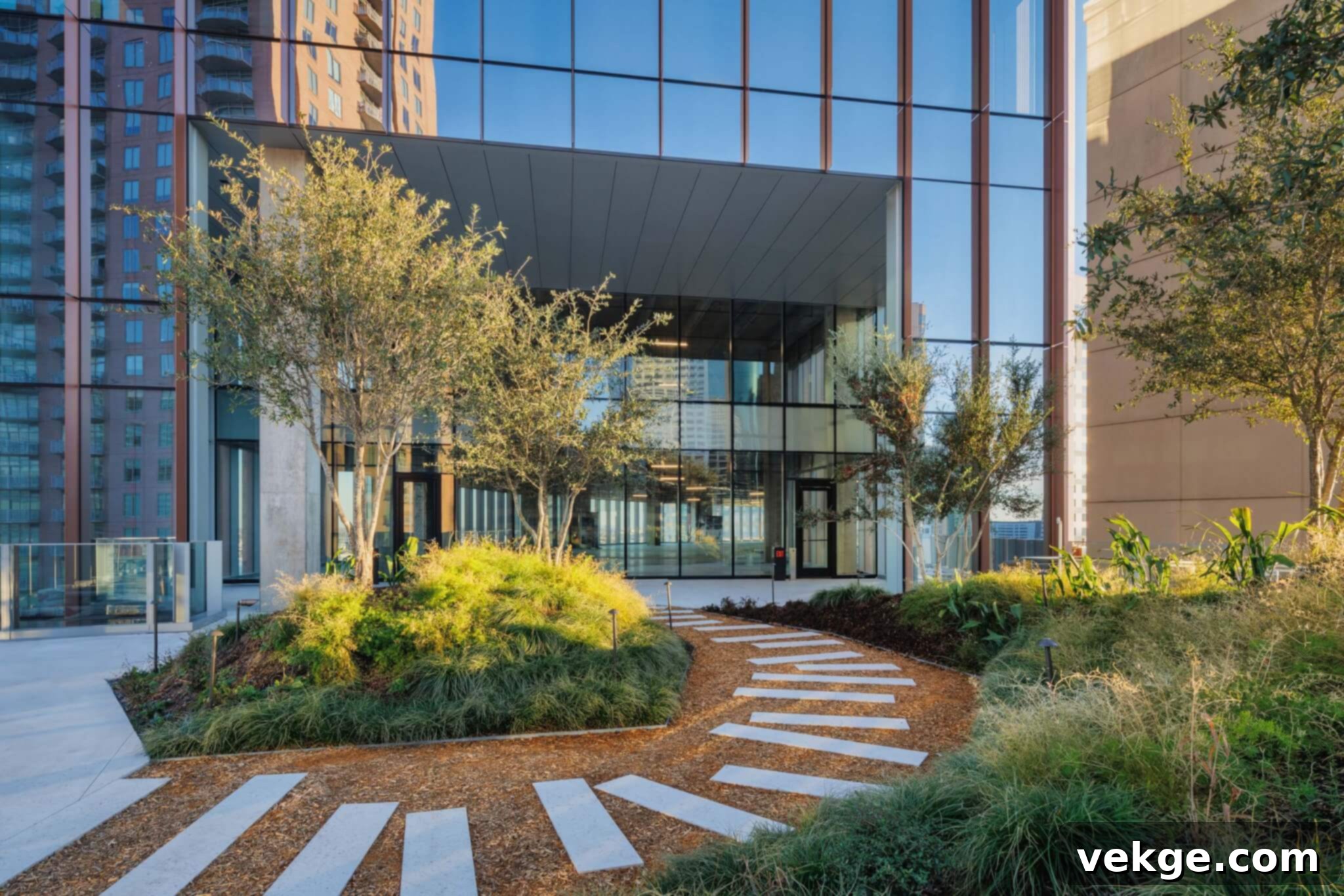Houston’s Green Transformation: Leading the Way in Sustainable Urban Development
In an era defined by pressing environmental concerns, sustainability has become an indispensable pillar of modern urban planning and architecture. Cities worldwide are grappling with the urgent need to mitigate climate change impacts, conserve natural resources, and foster communities that thrive in harmony with their ecological surroundings. Among these progressive urban centers, Houston, TX has emerged as a formidable leader, actively integrating comprehensive sustainable design principles throughout its expansive metropolis. This commitment positions Houston at the forefront of the global sustainability movement, demonstrating a tangible dedication to environmental stewardship.
Houston’s forward-thinking initiatives are not merely aspirational; they reflect a deeply ingrained resolve to set new industry benchmarks and inspire other cities to adopt similar, impactful practices. The city’s multi-faceted approach to sustainable development underscores a vision for a resilient, eco-conscious future, emphasizing innovation and practical implementation.
This article delves into the remarkable progress designers in Houston TX have achieved in embedding sustainability into the very fabric of its urban planning and architectural endeavors. From pioneering green building standards to enhancing urban mobility and preserving natural habitats, Houston’s journey is a testament to the power of integrated sustainable strategies.
With a keen focus on innovation and measurable progress, we will explore the transformative green building practices that have become increasingly prevalent across the city. We’ll also examine the significant improvements in public transportation and bike infrastructure, the strategic development and expansion of vital parks and green spaces, the effective implementation of advanced water conservation strategies, and the critical role of robust community engagement in cultivating a city-wide culture of sustainability. The following discourse will meticulously detail Houston’s sustainable evolution, highlighting the diverse and interconnected strategies that underpin the city’s unwavering commitment to holistic, environmentally sound development.
Pioneering Green Building Initiatives in Houston

The city of Houston stands as a leading innovator in sustainable construction practices, continually setting new benchmarks for eco-friendly development. A significant marker of this progress is the widespread adoption of LEED certification (Leadership in Energy and Environmental Design). This internationally recognized standard for green building signifies a major step forward in minimizing the ecological footprint of urban development, with local governments and forward-thinking policymakers actively promoting the inclusion of sustainable features in both new and existing construction projects across the metropolis.
A central strategy in Houston’s green building push is the comprehensive implementation of high-efficiency, energy-conserving systems designed to drastically reduce electricity consumption. This extends beyond basic insulation to encompass advanced HVAC systems, smart building technologies, and superior building envelopes that minimize heat gain and loss. Furthermore, the city champions the construction of green roofs, which offer a natural and highly effective solution to combat the urban heat island effect, a common challenge in large cities like Houston.
Green roofs are more than just aesthetically pleasing; they provide a vital layer of vegetation that absorbs sunlight, offers superior insulation, and releases moisture into the air through photosynthesis, creating a substantial cooling effect for the building and its immediate surroundings. This not only reduces the energy demand for air conditioning but also contributes to better air quality and stormwater management. Beyond green roofs, Houston’s commitment to sustainable construction also emphasizes the prioritization of recycled and locally sourced materials. By utilizing these resources, the city significantly reduces the construction industry’s carbon footprint, minimizes waste, and supports local economies, showcasing a holistic approach to environmentally responsible building.
Advancing Public Transportation and Bike Infrastructure in Houston

Houston is making significant strides in its commitment to sustainability by rigorously expanding its public transportation network and substantially enhancing facilities for cyclists. The city’s proactive measures have resulted in the strategic addition of more buses to its fleet, the creation of numerous new bus routes to better serve diverse neighborhoods, and the successful inauguration of a user-friendly bike-sharing program. These initiatives are all aimed at significantly improving urban mobility and offering residents viable, eco-friendly alternatives to single-occupancy vehicle travel.
Commuters and recreational riders are now discovering an ever-growing network of dedicated cycling paths, meticulously equipped with advanced safety measures and clear signage. These paths intelligently connect crucial areas of the city, fostering safer, more enjoyable, and highly accessible rides for people of all ages and abilities. This robust growth in sustainable infrastructure is specifically designed to cater to a burgeoning population increasingly motivated to lower their reliance on cars. The ultimate goal is to alleviate traffic congestion, drastically diminish air pollution, and promote healthier, active lifestyles among residents.
Houston’s unwavering initiatives in diversifying and expanding its transportation options serve as a powerful representation of its broader environmental responsibility. These efforts are perfectly aligned with its overarching strategy to reduce carbon emissions, improve urban air quality, and support cleaner, more sustainable ways of navigating the city. By investing heavily in these alternative modes of transport, Houston demonstrates a forward-thinking approach to urban planning, providing its inhabitants with practical, environmentally sound choices for their daily commutes and leisure activities, thereby paving the way for a truly greener urban future.
Strategic Park and Green Space Development for a Healthier Houston
Houston has prioritized the strategic expansion and thoughtful improvement of its parks and green spaces, recognizing their profound impact on urban well-being and ecological health. These revitalized and newly created green areas play a pivotal role in cleansing the city’s air, offering invaluable recreational havens for residents, and significantly boosting local biodiversity. They are not just amenities; they are critical components of a resilient urban ecosystem.
Transforming underutilized or empty lots into vibrant community gardens and establishing urban forests amidst the bustling city are prime examples of Houston’s innovative green initiatives. These projects not only beautify the urban landscape but also empower local communities to engage directly with nature, grow their own food, and foster stronger social bonds. City leaders are taking proactive steps to protect future green spaces by thoughtfully integrating them into the regulations and master plans for new developments. This ensures that as Houston continues to grow, its natural assets are preserved and enhanced, preventing urban sprawl from eroding vital ecological corridors.
Houston’s expanding network of green spaces acts as crucial natural oases within the dynamic urban environment. They strike an essential balance between the demands of city life and the restorative power of nature, vividly illustrating the manifold benefits of environmentally conscious urban planning. These concerted efforts are intrinsically linked to the city’s wider strategy to cultivate an urban ecosystem that benefits both human inhabitants and diverse wildlife alike, ensuring a sustainable, attractive, and livable cityscape for generations to come. From large-scale bayou greenways to neighborhood pocket parks, each green space contributes to a healthier, more vibrant Houston.
Comprehensive Water Conservation Strategies in Houston

Houston is proactively addressing its unique environmental challenges, particularly those related to water management, by instituting a diverse array of advanced water conservation strategies. A key initiative is the widespread adoption of rainwater harvesting systems, empowering residents, commercial enterprises, and industrial facilities to collect and efficiently reuse rainwater. This innovative approach creates an invaluable alternative source of water, significantly reducing reliance on the city’s municipal water supply and lessening the strain on vital water resources during periods of drought.
Beyond harvesting, the strategic use of permeable paving is revolutionizing how Houston manages stormwater. By allowing rainwater to slowly soak into the ground instead of running off into storm drains, permeable surfaces dramatically reduce the city’s perennial flooding issues. This not only mitigates the risks of urban inundation but also plays a crucial role in recharging depleted groundwater supplies and filtering pollutants naturally, contributing to a healthier local ecosystem. This infrastructure change is a game-changer for a city prone to heavy rainfall.
In the realm of landscaping, Houston actively champions water-saving practices through programs that educate and incentivize. This includes promoting the selection of drought-tolerant and native plants, which require minimal irrigation, and advocating for the installation of highly efficient irrigation methods like drip systems and smart controllers. These efforts ensure that landscapes remain green and vibrant while conserving precious water resources. Collectively, these initiatives demonstrate Houston’s extensive and sophisticated strategy for water conservation, designed to protect its water resources from both oversupply (flooding) and shortage (drought). This multi-pronged approach emphatically underlines the city’s deep commitment to long-term environmental sustainability and robust infrastructure resilience, preparing it for future climatic challenges.
Fostering Sustainability Through Community Engagement and Education in Houston
The city of Houston recognizes that true sustainability is a collective endeavor, deeply rooted in the active participation and informed choices of its citizens. To this end, Houston is profoundly committed to engaging its diverse residents in the crucial quest toward a more sustainable future. Through a rich variety of educational initiatives, including hands-on workshops, insightful seminars, and extensive community outreach programs, Houston is systematically increasing environmental awareness and literacy among its residents across all demographics.
By providing essential tools, practical knowledge, and accessible resources, these carefully designed programs empower individuals to make more eco-friendly and responsible choices in their daily lives. Topics covered range from household energy efficiency and waste reduction to composting and responsible water usage, equipping citizens with actionable steps they can take. The overarching goal is not merely to inform but to powerfully inspire action, fostering a pervasive culture of environmental stewardship and promoting a collective effort toward sustainable living throughout the metropolitan area. This proactive commitment to broad community involvement clearly illustrates Houston’s profound recognition that well-informed and engaged citizens are absolutely critical to the successful realization of its ambitious environmental objectives. Through this collaborative approach, Houston is building a resilient community equipped to champion sustainability for generations.
Houston’s Enduring Commitment to a Sustainable Future
Houston, TX truly stands out as a beacon of progress with its all-encompassing and innovative strategies for sustainable urban development. These initiatives are meticulously designed to intertwine a resilient, vibrant, and green urban scenery that serves as a model for cities globally. The city’s comprehensive approach encompasses a wide array of groundbreaking features and programs that collectively enhance its environmental performance and quality of life for its residents.
Key among these are the widespread adoption of LEED-certified buildings, which consistently set new industry benchmarks for eco-friendly construction and energy efficiency. Furthermore, Houston’s ongoing efforts to significantly improve its public transport networks and expand its robust bike infrastructure are actively reducing car dependency, alleviating traffic congestion, and improving air quality. The strategic development and protection of abundant parks and green spaces not only support crucial biodiversity but also provide essential recreational opportunities and mitigate urban heat islands. Simultaneously, advanced water conservation efforts are addressing the critical challenges of both flooding and drought, ensuring the city’s water security for the long term.
Crucially, the city’s robust educational programs and proactive community engagement initiatives are fostering a pervasive culture focused on environmental responsibility and collective action. These efforts ensure that sustainability is not just a top-down mandate but a deeply ingrained value shared by all Houstonians. Together, Houston’s diverse and interconnected sustainability programs are not only dramatically improving the quality of life for its residents today but also serving as an inspirational model for other urban centers worldwide seeking to integrate sustainability seamlessly into their core development strategies. By demonstrating what is achievable through commitment and innovation, Houston is actively paving the way for a more sustainable and resilient future on a global scale.
